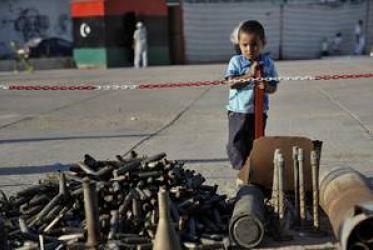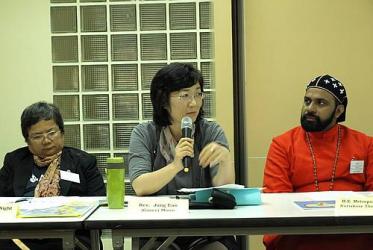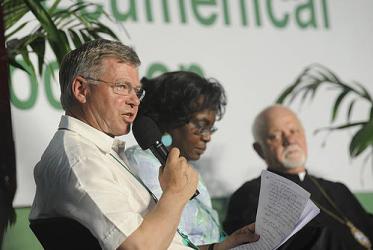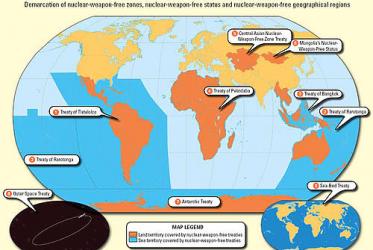Displaying 101 - 120 of 150
Can you imagine a world without nuclear weapons?
03 October 2011
What does “God's security” look like?
24 May 2011
Christian alliance for advocacy marks successes, future challenges
09 December 2010
Conference explores global church's responsibility to confront racism
08 September 2010
WCC presses for US-North Korea talks
12 November 2009
World leaders get church backing on nuclear disarmament
02 November 2009
Seeking a nuclear weapon-free world
01 September 2009
WCC delegation visits Georgia and Russia
03 September 2008












